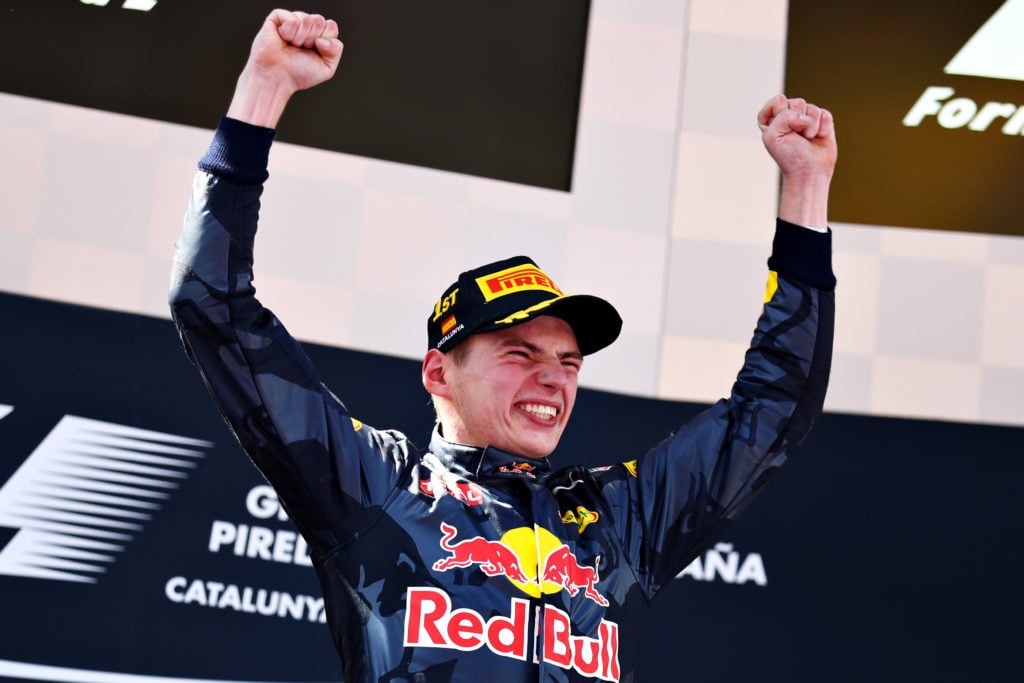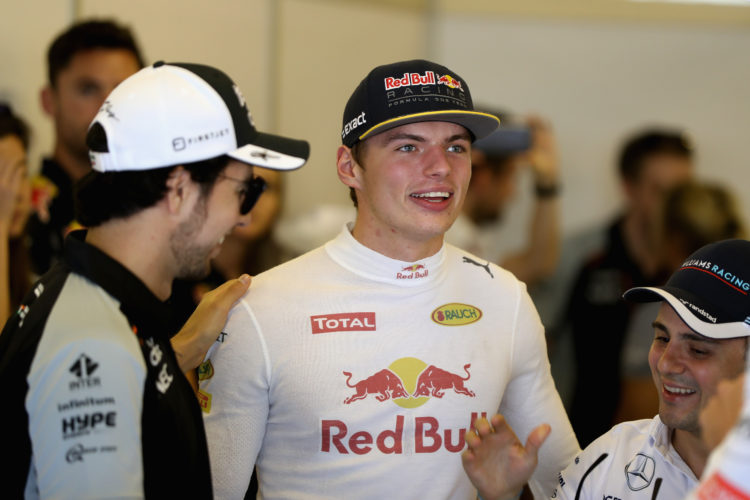Max Verstappen has quickly established himself as one of the all-time Formula 1 greats. At 27 years old, he is already a four-time world champion.
Making his debut at just 17 with Toro Rosso in 2015, the Dutchman’s talent was clear from the beginning. Helmut Marko knew Verstappen was ready for F1 the ‘first moment’ he stepped into Jean-Eric Vergne’s car in FP1 in Japan in 2014.
Verstappen finished 12th in the standings in his debut season with 49 points, achieving an impressive best finish of fourth in Hungary and Austin. He joined the main Red Bull team four races into the 2016 season and would go on to achieve history with the team.
The Milton Keynes-based outfit took time to find performance in the turbo hybrid era after dominating the early 2010s with Sebastian Vettel. Red Bull fell behind Mercedes and Ferrari, but it was clear they had potential with Verstappen in the team.
Towards the late 2010s, the Dutchman soon became Lewis Hamilton’s closest title challenger, eventually controversially beating the Brit at the 2021 Abu Dhabi Grand Prix to win his maiden championship.
Come the turn of the ground effect era, Red Bull have got their package spot on as Verstappen has now claimed the last four championships in a row. He will be looking to become only the second driver besides Michael Schumacher to win five consecutive titles in 2025.

Max Verstappen set the record for the youngest F1 winner on his Red Bull debut at the 2016 Spanish Grand Prix
Red Bull moved very quickly to get Verstappen into F1. The team promoted him straight from Formula 3 to the pinnacle of motorsport believing he was ready for the challenge.
In 2016, they made another big decision for the Dutchman’s career. After a dismal start to the season, Daniil Kvyat was dropped by Red Bull and relegated back to Toro Rosso, with Verstappen replacing him at the main team.
His debut came at the Spanish Grand Prix where he qualified fourth next to teammate Daniel Ricciardo and behind the Mercedes of Hamilton and Nico Rosberg.
READ MORE: Red Bull driver Max Verstappen’s life outside F1 from net worth to girlfriend
Coming out of the exit of turn three, Verstappen was handed a gift as Hamilton and Rosberg crashed into each other and took both the Silver Arrows out. After passing Ricciardo and having a tense battle with the Ferraris of Kimi Raikkonen and Sebastian Vettel, Verstappen held on to win on his Red Bull debut.
At 18 years and 228 days old, he became the youngest F1 winner and the first – and to date only – teenager to win a Grand Prix. Given how rare it is for teenagers to make the step up to F1 nowadays, especially into top teams, it is a record that may never be beaten.
| Driver | Age | Race | |
| 1 | Max Verstappen | 18 years, 228 days | 2016 Spanish Grand Prix |
| 2 | Sebastian Vettel | 21 years, 73 days | 2008 Italian Grand Prix |
| 3 | Charles Leclerc | 21 years, 320 days | 2019 Belgian Grand Prix |
| 4 | Fernando Alonso | 22 years, 26 days | 2003 Hungarian Grand Prix |
| 5 | Tony Ruttman | 22 years, 80 days | 1952 Indianapolis 500 |
Andrea Kimi Antonelli could stand a chance of beating it as he is set to become the third youngest F1 driver of all time at 18 years and 203 days old in Australia. But with only 25 days to beat or match Verstappen’s record, the Italian will likely have to win on debut with Mercedes.
How the new FIA regulations on swearing will affect Max Verstappen’s title charge in 2025
Heading into 2025, Verstappen will face a tough challenge to defend his title. Red Bull had arguably the third fastest car come the end of 2024 as McLaren and Ferrari caught up in development.
Another issue that will not help Verstappen is the latest crackdown on swearing by FIA president Mohammed Ben Sulayem. The governing body have issued new regulations and punishments for misconduct, which include increased fines, race bans and even points deductions.
Verstappen was fined community service hours for saying the f-word in a press conference last season, which he served at the FIA Prize Giving Gala in Rwanda. Verstappen refused to answer questions at races in retaliation against the penalty.
If Verstappen falls out of line again with swearing, he could face a fine four times the value of the one Charles Leclerc received for saying the f-word in Singapore.
The decision will likely be unpopular among drivers with the GDPA openly criticising the FIA last season for the handling of these matters. Even ‘a lot’ of people within the FIA oppose the decision – creating more drama in what is already a tense situation for the governing body.

